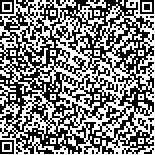| 蒋 侃,吴 标.表皮生长因子受体酪氨酸激酶抑制剂在治疗非小细胞肺癌中的研究进展[J].中国肿瘤,2018,27(2):129-135. |
| 表皮生长因子受体酪氨酸激酶抑制剂在治疗非小细胞肺癌中的研究进展 |
| Research Progress of Epidermal Growth Factor Receptor-Tyrosine Kinase Inhibitor in Non-small Cell Lung Cancer |
| 投稿时间:2017-08-03 |
| DOI:10.11735/j.issn.1004-0242.2018.02.A009 |
|
 |
| 中文关键词: 表皮生长因子受体酪氨酸激酶抑制剂 非小细胞肺癌 治疗 |
| 英文关键词:epidermal growth factor receptor-tyrosine kinase inhibitor(EGFR-TKI) non-small cell lung cancer(NSCLC) therapy |
| 基金项目:福建省青年课题基金(2015-1-14);福建省医学创新课题(2017-CXB-1) |
|
| 摘要点击次数: 2286 |
| 全文下载次数: 823 |
| 中文摘要: |
| 摘 要:表皮生长因子受体酪氨酸激酶抑制剂(EGFR-TKI )至今已上市近二十年。第一代EGFR-TKI在提高EGFR突变晚期非小细胞肺癌(NSCLC)的客观缓解率(ORR)、延长无进展生存期(PFS)方面起了重大的贡献。第二代EGFR-TKI在延长总生存期(OS)方面带来了惊喜。第三代EGFR-TKI克服了第一二代药物的耐药,其一线PFS可能打破现有治疗的格局。第四代EGFR-TKI已在研发中且EGFR-TKI研究已扩展到术后辅助治疗领域,期待其进一步的发展。 |
| 英文摘要: |
| Abstract:The epidermal growth factor receptor-tyrosine kinase inhibitors(EGFR-TKI) have been available on the market for nearly twenty years. The first generation EGFR-TKI made a significant contribution by increasing objective response rate(ORR) and prolonging progression free survival (PFS) in patients with EGFR mutation-positive non-small cell lung cancer. The second generation EGFR-TKI surprisedly extended the overall survival(OS). The third generation EGFR-TKI overcame the resistance to the first and the second generation EGFR-TKI. And its first-line PFS will be likely to break the existing treatment patterns. The fourth generation EGFR-TKI is being developed to overcome the resistant to third generation and the clinical trails will be extended to postoperative adjuvant therapy. The further development of EGFR-TKIs is expected. |
|
在线阅读
查看全文 查看/发表评论 下载PDF阅读器 |